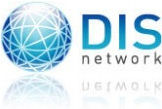Progress is slow because I have daily job and family duties.
I wasted a few days on the garbage collector that doesn't work when code is compiled in release mode. The problem is due to the garbage collector and an initialization failure. Since it only shows up in release mode, it is hard to debug.
I am in the process of extending the IDR API to support pre-encoded IDR data insertion and extraction. This will be used to implement a remote IDR data storage service, event dispatching, relays or broadcasting or simply to optimize generation of frequently emitted requests or responses. The need to support exceptions in this process requires some attention.
|
0 Comments
... because it reduces communication latency and memory requirement. Things have a little bit evolved since the last time I checked the D programming language web site. An updated pdf version of the D language specification is available and the poseidon IDE is catching momentum. DIS prototype is currently developped in C++ with Microsoft's Visual Studio C++ IDE. This is because it is a very reliable IDE and has the best debugger I know and at this stage of development debugging plays an important role. When I was younger I always thought Murphy's law was a kind of a joke. It sounds so fatalist. Intuitively I believed there was some truth in it, but I couldn't point it out. Here is its most popular, concise and general formulation. With most modern programming languages there is no such question because garbage collector is built-in. This is not the case with C++, and since I develop the first prototype in this language, I had to anwser it. Do I really need a garbage collector ? DITP was designed early, together with IDR. Since IDR is now operational and ready for throughout testing, DITP could be implemented and tested. As beeing the most fundamental component of DIS, IDR was designed and implemented first. By reading and using any information published on this web site you implicitely and totally agree to fully assume any possible consequences of this activity. It was time to create this web site so I could explain what is DIS and, what I value most, get your feedback to make DIS more useful. Please leave a comment or send a mail. |
AuthorChristophe Meessen is a computer science engineer working in France. Any suggestions to make DIS more useful ? Tell me by using the contact page. Categories
All
Archives
December 2017
|


 RSS Feed
RSS Feed
